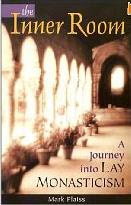What Prayer is NOT:
· Not just an activity or obligation
· Not just a mixture of words
What Prayer is:
· Our relationship with God
· An encounter of the Lover and the Beloved.
Intimate Relationship with God:
· Is NOT instant
· Does NOT always go with comfort (‘feel good’)
· Will require a SACRIFICE of both parties at some point
· Needs:
o Time
o Energy
o Very self
Reflections on Prayer:
The more one prays, the more one wants to pray.
· ‘We are like an arrow shot toward a universal God’. (St. Augustine)
· God is the center of gravity that irresistibly attracts us. The closer we get, the more speed we gain.
o The more we love God, the more want to love Him.
o The more we relate to God, the more we want to want to relate to Him.
o Without realizing it, beneath all our dissatisfactions, there is a current toward the Only One capable of concentrating our strengths and calming our aspirations.
The less one prays, the less one wants to pray.
· Begins when we abandon prayer for a variety of valid (sometimes) reasons.
· We then become interiorly distracted, finding a variety of excuses.
· The desire for God diminishes and is replaced by things, people, event, works.
The more one prays, the more God is ‘God is within us’.
· God becomes less of an idea and more of a person.
· God becomes freedom, humility, love, and joy.
· God becomes an irresistible and revolutionary force that draws all things to Himself.
· God completely changes the ‘face’ of the person.
The less one prays, the less God is ‘God is within us’.
· God becomes meaningless and lifeless.
· God becomes an abstract idea.
· God becomes a word that almost says nothing to us.
When one stops praying, God ends up being a nobody’.
· God becomes an insignificant part of our lives.
· God dies; people become atheists.
· People never talk of eternal life or the soul or God.
· People talk of suffering and social injustice.
Notes on Personal Prayer:
Some signs that we lack intimacy with God:
· We seek him only in times of need (A ‘give me, God!’)
· We do much of the talking and less of the listening (God, listen to me.)
· We see prayer as a mere obligation that need to be fulfilled (God, I have to do this!)
Fruits of the Third Mansion (Carmelite Spirituality):
· The Third Mansion is a prayer state wherein the individual has grown a devotion to God, and may be eager to advance more in prayer. However, there is a tendency for people to create a world according to their own devices, playing with God and responding to Him only when it suits them. They invent a thousand and one excuses to rationalize their behavior and they may even convince themselves that their will is God’s will and whatever is not according to their desires is not the will of God. (Source: The Gospel of Contemplation, Sr. Mary Niere, OCD)
Suggestions for personal prayer:
Be properly disposed in prayer. What is said to God and how it is said to Him is important. However a greater concern is the interior disposition of our hearts – hearts that are humble, transparent, sincere, patient, generous, trusting, loving and childlike.
How do we dispose ourselves to prayer?
· Find quality time to pray (i.e., your prayer time)
· We need to realize that giving time to prayer is giving our time to God. Giving our time to God himself is giving presence to him. Giving our presence to God is giving ourselves to him.
· Choose the time convenient for you to be alone with God, when there is less distraction, less noise, less tasks to think of. Many usually choose the evening to be with God.
· Nothing pleases God more when we give our precious quality time, very presence and very self to Him.
· Find a good place for prayer
· A place for prayer can be just about anywhere that you can stay undisturbed. It could be a Church, or an Adoration Chapel. Perhaps it is a quiet place in a park or even a fire escape. It could be a bedroom.
· The prayer place is not chosen so people can see you pray, nor is it a place just to relax. It is a place to be yourself and to lose yourself, to lose track of time, a place to wrestle with the Creator, ‘to feel one's body made a temple of the Holy Spirit’. What matters most is not the place itself; what matters is that it helps you let God BE God and let you pay full attention to the most important of all relationships.
· Persevere in your prayer time
· One of the best things we can give God is our faithfulness in preserving in our prayer times and not to omit or cut them short. If we decide to pray for twenty minutes, we commit ourselves to pray for twenty minutes.
· Faithfulness teaches us how to be humble, knowing that we are not always in control when we pray. When we do not cut short our prayer time due to restlessness, dryness or desolation, then we allow God to school us in other virtues like humility, patience, generosity, trust and love. We learn to live those virtues, because in prayer, that is what we become.
· Learn to befriend silence
· The voice of God is often heard only in a whisper, in a breath of silence. Remaining in silence in God’s presence, open to the Holy Spirit, is already prayer.
· The road to a deeper relationship with God is not one of achieving inner silence at all costs by following some technique that creates a kind of emptiness within. If, instead, with a childlike trust we let Christ pray silently within us, then one day we shall discover that the depths of our being are inhabited by a Presence.
· Beg for specific grace to understand God. Begging in prayer humbles and disposes us all the more to meet God in a more intimate way.
· Pray with the heart and than with the head by choosing the most important matters that are we need to bring to God for the moment. We should never take in too much matter for prayer. Bring to God the experiences that really matter to us and those that really affect us most deeply – our joys, hopes and desires, our hurts, pains and fears. In that, we learn to pray more with our hearts and less with our minds and we allow God to let Him be Himself to us.
· Learn to savor His presence
· If a mere word or a line or a passage or a reflection question or a spiritual exercise touches us deeply, then we must simply stay there, where we focus, dwell and relish and not move on. If something is touching us in prayer, by way of our consolations, then trust that this is exactly where God desires to meet us. Repeating our prayer and staying where we gained fruit is a form of savoring His presence.
· We must not, however seed for consolation (i.e., that good feeling in prayer), but rather seek God Himself and Him alone – the God of consolation and the source of all consoling experiences.
· Keep a journal
o Writing oftentimes can help us pray better and clarify many things to us. Take time to write down on a journal the fruits of your prayer. This can be done during and especially after the formal prayer period.
Final word:
The ultimate success indicator of one’s prayer life is CHARITY. The way we pray should affect and promote the way we love. The way we encounter God in our silent desert should influence and enhance genuinely the way we serve and love our neighbor in the busy market place. And also, the way we love should animate our prayer and help us become better praying people.
Exercise: Practice Silence
(Note: This exercise is meant to aid a person to experience silence so as to be disposed to prayer.)
1. Sit in a chair with your back straight, feet flat on the floor and your hands on your lap. Make sure that you relaxed (i.e., no tense muscles).
2. Close your eyes gently so that you will not be distracted of what you see.
3. Make an act of faith, hope and love in God’s presence (e.g., ‘Heavenly Father, I believe that You are present and I love You. I trust and hope that You will let me experience Your love personally. May I obtain the Grace of Your Love.)
4. Listen to the sounds around you. Just listen without connecting or associating any idea with the sound.
5. Imagine you are looking in front of an empty white board or blank white screen.
6. Together with the rhythm of your breathing, as you breathe in and as you breathe out, pray in the silence the Name of Jesus, gradually lengthening it (i.e., 5 minutes, 10 minutes, etc.)
Subscribe to:
Post Comments (Atom)











Congratulations on your new blog. I liked the several references to silence -- for me the door from the world to God's presence.
ReplyDeleteThanks, John! I really appreciate your reply. Just one thing. The exercise of silence mentioned in this articlel is to dispose oneself to prayer and not prayer itself. I hope to post something on the silence that is prayer. God bless you!
ReplyDeleteWelcome to the Secular Franciscans and to the blogosphere. God bless you on your journey. I've added your blog to my Google Reader to keep informed of your posts. If you would like to check out mine, you can find me at:
ReplyDeletehttp://tomsfo1.blogspot.com/